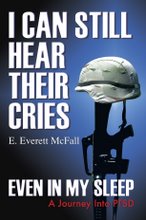The Labeling of PTSD may be too harsh for the Military to deal with, so they are adapting a more Manly- Man- Classification---Combat Operational Stress Reaction-(COSR).
The Leaders Guide is a quick reference, designed to help leaders at all levels take care of Marines within the unit who are in distress because of their situation or behavior. It covers approximately 40 different problems Marines may face. Problems that Marines face whether deployment related, financial or personal can all be detrimental not only to the readiness of the individual Marine, but to the entire unit as well. These issues can occupy a great amount of the leaders time and personnel, and can have significant consequences for the command and the Marine if the issue is not quickly addressed and handled effectively.
Even the most motivated and well trained Marinescan find themselves in difficult situations. These situations, while infrequent, can weigh heavily on each Marines mind. Some Marines handle these problems well on their own, but others may not. These Marines will look to their leaders for guidance. The Leaders Guide provides the information and resources a leader needs to help their Marines overcome problems that have the potential to become severely debilitating.
Combat and Operational Stress (links)
Overview- What to Look For- What to Do- What to Avoid- What to Expect- Troubleshooting
“Combat/ Operational Stress Reaction” (COSR) is an issue that will likely affect every Marine unit. Left unaddressed, the effects of combat and operational stress can lead to long-term psychological injuries. Although not as visible as physical trauma, psychological injuries have been a significant portion of total casualties in any conflict. In the American military, combat stress reactions were noted as early as the Civil War. After the First World War, large numbers of combatants suffering from “shell shock” sought medical attention. Combat stress reactions were observed in more than 20% of US troops in World War II, and in the Korean War, 10% of medical evacuations were attributable to combat stress. Some estimate that as many as 30% of Vietnam veterans suffer from the long-term effects of untreated COSR. Approximately 15% of long term casualties after the Gulf War were psychological in nature. Effectively addressing the psychological effects of such stress both before and after it occurs can greatly improve a unit's readiness status.
Combat Stress -Overview
"Combat/ Operational Stress Reaction" (COSR) is a term used to describe physiological, behavioral, and psychosocial reactions experienced before, during or after combat. These are normal reactions to the abnormal circumstances of war. Some of these normal reactions are adaptive, such as increased alertness, exceptional strength, heightened endurance or tolerance to pain and hardship. However, other common reactions to combat may not be adaptive, such as difficulty concentrating, and sleeping, diarrhea, extreme anxiety, sudden mood swings, regression, and marked sadness. Usually the severity of the reaction depends in part on the severity and duration of exposure.
From Newsweek.com
Dec. 11, 2006: Three years and nine months after the U.S.-led Coalition began its war against Saddam Hussein, researchers have quietly recorded another grim milestone in the cost of the conflict. American military casualties have now exceeded 25,000.
(1) Department of Defense press releases @ DoD(2) CENTCOM press releases @ CENTCOM(3) MNF press releases @ MNF(4) British Ministry of Defense website @ MoD
You can be sure that we will be revisiting this topic in greater detail. (Yes, this is PTSD with a new fancy wrapper.)
To access the Leaders Guide, click here. Pass the Word, tell others/ send them an Email about this site- click on the white envelope.
Semper Fi- "DOC" McFall








